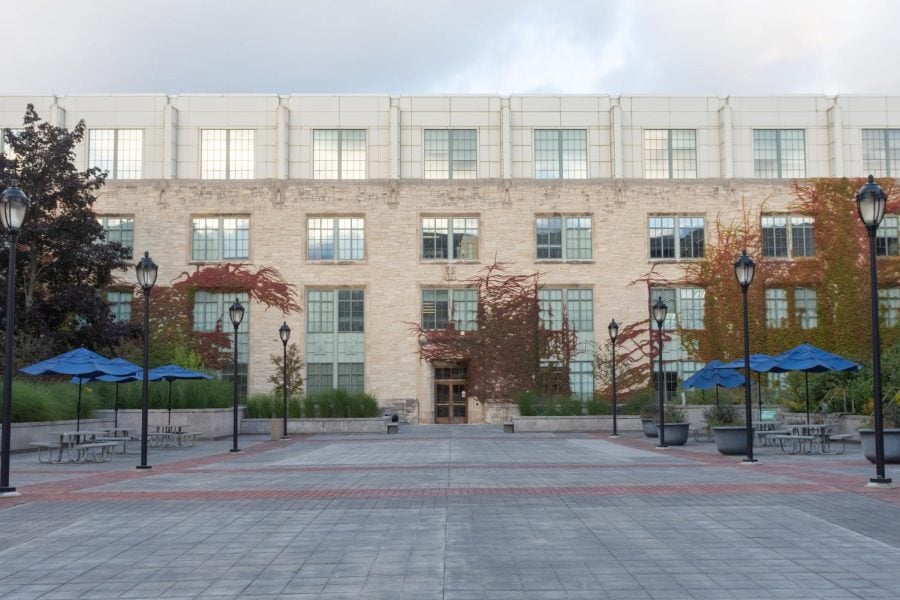Army’s synthetic biology center grants funding to Northwestern
Daily file photo by Laura Simmons
The Technological Institute. The grants are a part of the U.S. Army’s recently established basic research center, which supports projects involving synthetic biology to design advanced materials.
January 4, 2023
Northwestern and the Massachusetts Institute of Technology have received funding from the U.S. Army to continue work related to synthetic biology, the University announced Wednesday.
Synthetic biology is an interdisciplinary approach to forming new biological systems through DNA manipulation. The University’s project, titled “The Center for Predictive Materials Design,” combines synthetic biology and materials expertise to create new biomaterials.
“Synthetic biology has the potential to transform the way materials are made for the U.S. Army and Department of Defense,” McCormick Prof. Danielle Tullman-Ercek said.
The grants are a part of the U.S. Army’s recently established basic research center, which supports projects dedicated to designing advanced materials and engineering environmental microbial communities, according to the release.
A University-led team will work toward potential applications of biological materials in wearable electronics and environmentally-adjusting materials.
McCormick Prof. Michael Jewett, the team’s principal investigator, said the group is collaborating with other universities, including California Institute of Technology and Columbia University on microbial manipulations.
The project aims to increase the U.S. Army’s intellectual capacity in synthetic biology and improve the relationship between the U.S. Army Science and Technology Enterprise and the broader synthetic biology research community, according to the release.
Email: lexigoldstein2026@u.northwestern.edu
Twitter: @lexipgoldstein
Related Stories:
— Northwestern researchers discuss synthetic biology
— NU professors win Gates Foundation grants for synthetic biology projects
— Northwestern Engineering synthetic biologists aim to create one-step diagnostic test for COVID-19


